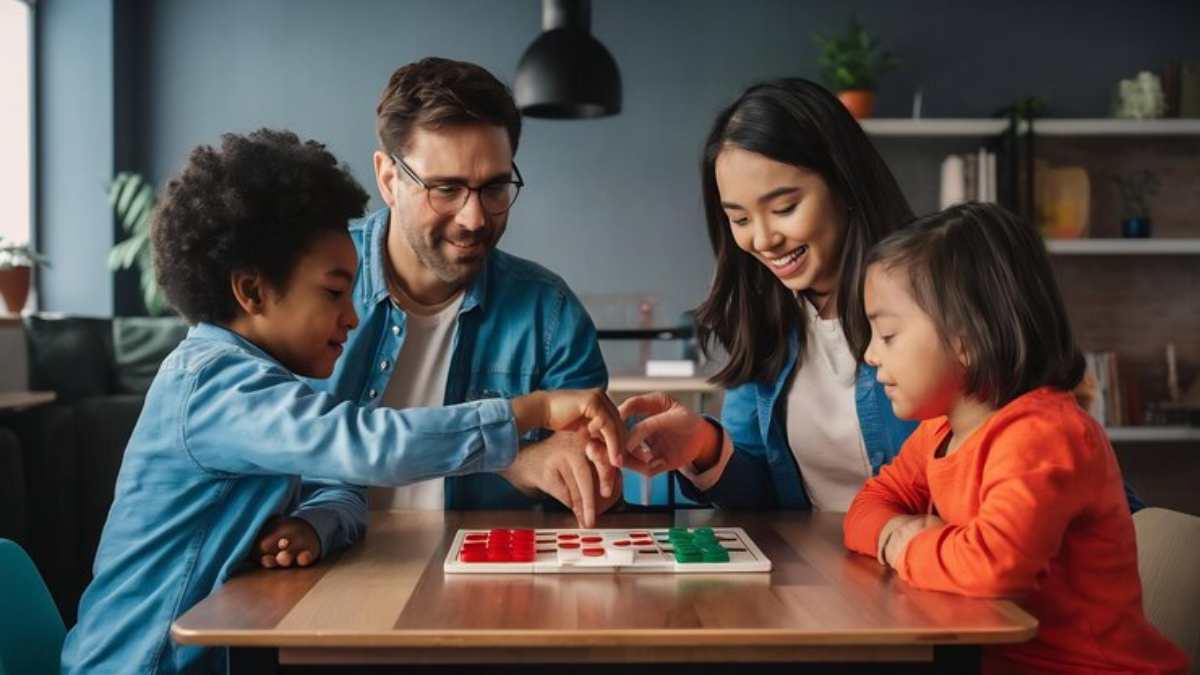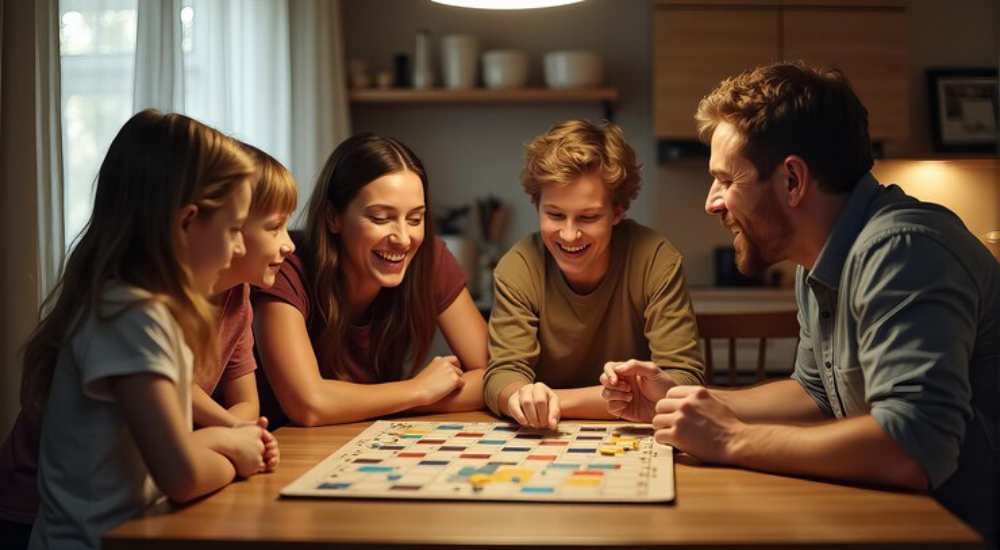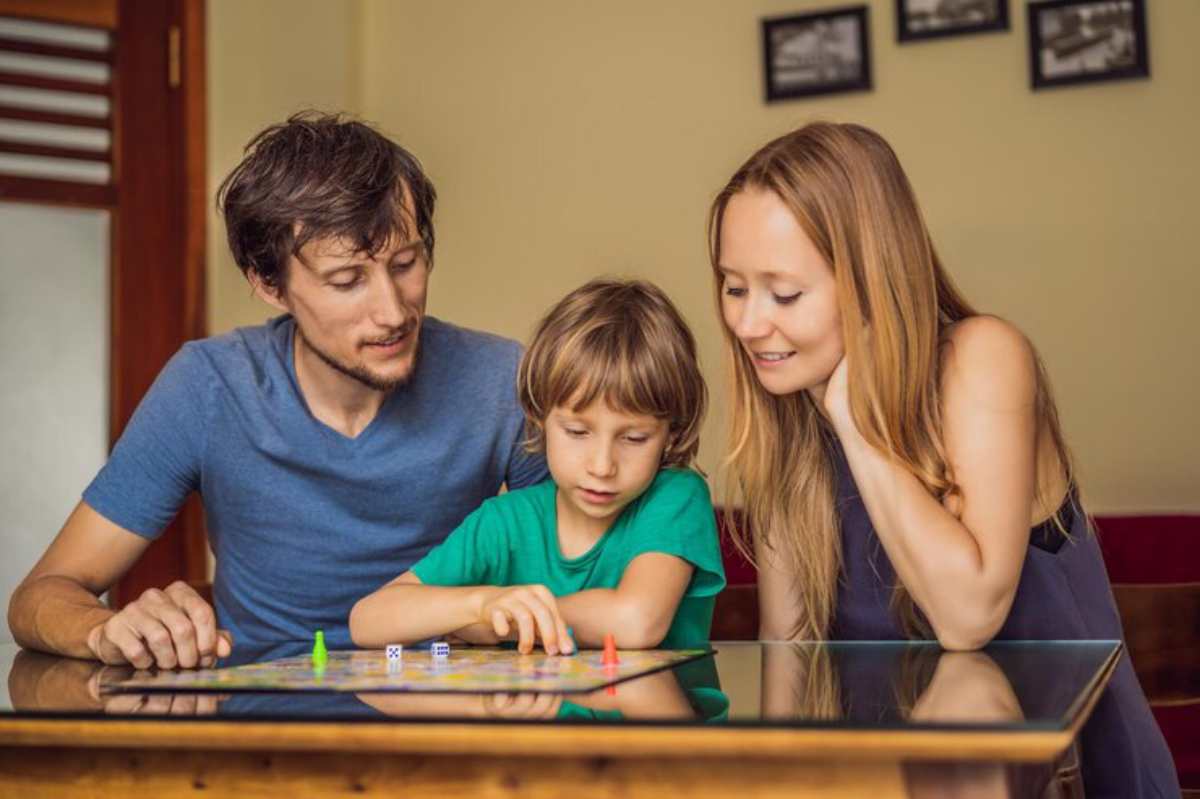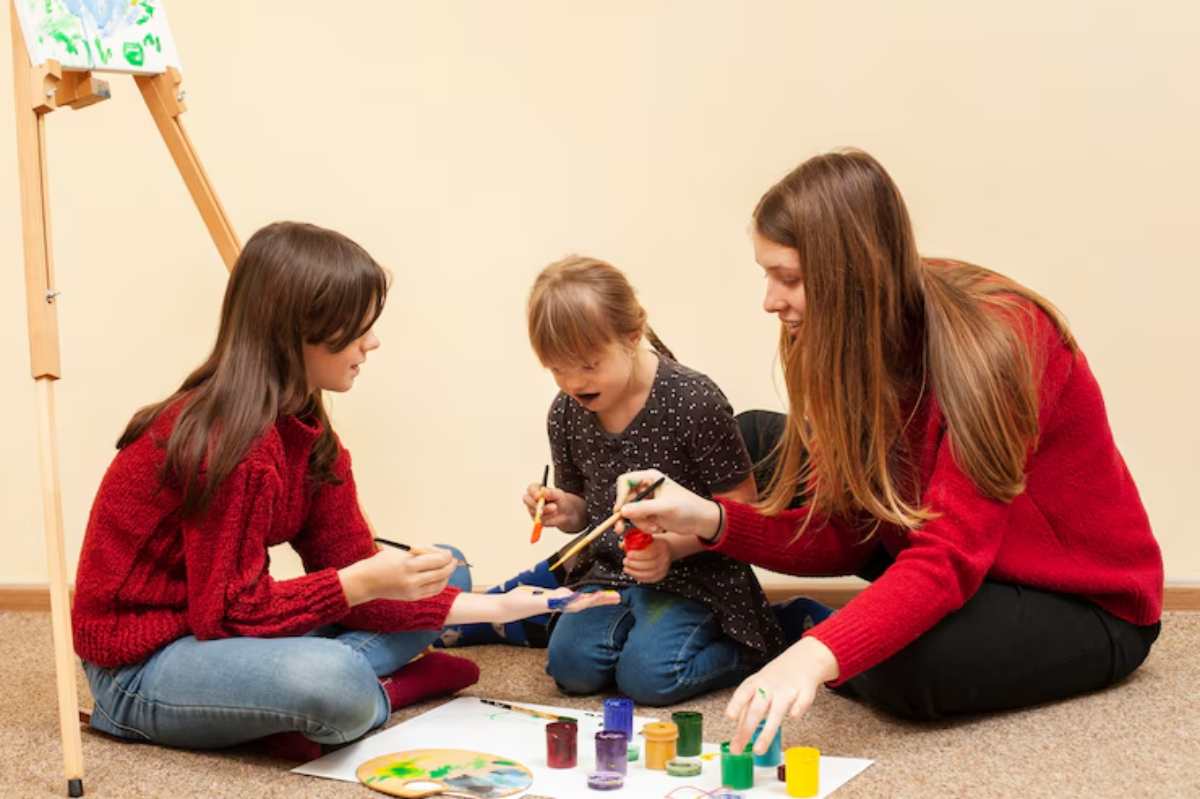
Board Games That Encourage Communication
This can be difficult to find in our world, where digital devices seem to be controlling our every thought. Screens can be entertaining, but they rarely are meaningful interactions. These interactions help build relationships and life skills. That’s where board games enter the picture, especially those that are designed to facilitate communication.
Family board games that focus on conversation, teamwork and expression do far more than entertain. They provide opportunities to connect, model active listening, and promote empathy. They do this in a fun, screen-free way. This blog shows how the right board games can connect families. They also help build important communication skills.
Why It Matters
Communication in the Age of Distraction
Families today are busier than ever. Between work, school and digital entertainment, making time to talk — and really listen — can be a challenge. We tend to talk a lot, and communication games create your special space to post it. They assist in co-processing issues and practising emotional expression. And we can do it all without screen time.
These moments are crucial. Good communication builds relationships and helps you succeed in school, work, and life. Games that encourage speaking, listening and team play allow children and adults to practice these skills. They do this in fun, low-pressure settings.
Strengthening Family Bonds

Beyond skill-building, communication games also create moments of shared joy and laughter. When a family gathers around a board game, barriers tend to drop. Everyone is focused on the same goal—whether it’s guessing a word, solving a mystery, or completing a cooperative mission.
This kind of shared experience fosters trust and connection, especially when it becomes part of a regular family routine.
Key Benefits
1. Enhancing Verbal Skills
Games like Taboo, Codenames, and Charades require players to describe, explain, and gesture—all while being clear and quick. These games sharpen vocabulary, improve clarity, and help players think on their feet.
More strategic games, such as The Resistance and Secret Hitler, require skills like persuasion, negotiation, and reading between the lines. These skills are valuable for older kids and teens.
2. Building Listening and Empathy
Communication isn’t just about talking—it’s about listening. Games like Dixit let players describe dreamlike pictures. Others then try to guess their meanings. This game encourages careful listening and interpretation.
Cooperative games, like Forbidden Island and Pandemic, require players to listen to each other’s ideas and views. These interactions teach patience, empathy, and how to collaborate effectively.
3. Encouraging Teamwork and Cooperation
In many communication-based games, success depends on how well players work together. Games like Outfoxed! Just One and (great for younger kids) focus on teamwork instead of competition. They encourage family members to support each other rather than prioritise winning.
This environment encourages teamwork and boosts confidence. It’s especially helpful for introverted kids who might be shy about speaking in big groups.
4. Offering a Healthy Alternative to Screen Time
Board games serve as a welcome break from digital noise. They create meaningful, tech-free moments where families can engage face-to-face. Playing a game—like handling cards, moving tokens, and reading clues—keeps players focused on the here and now. This helps them connect more deeply with each other.
Offline experiences matter a lot for kids in a digital-first world. They help children build strong interpersonal skills that aren’t just about touchscreens.
Additional Expert Tips & Common Mistakes to Avoid
Tips for Choosing the Right Communication Games
- Match the Game to the Age Group: Choose age-appropriate games that align with the developmental stage of your children. Younger kids may like visual games such as Zingo or Guess Who?. Teens might enjoy more complex games like Codenames or Wavelength.
- Combine Competition and Collaboration: Switch between competitive and cooperative games. This helps build various communication styles—persuasive, strategic, supportive, and descriptive.
- Create a Regular Game Night: Make board games a routine activity. Consistency builds open communication and gives everyone something to anticipate.
Common Pitfalls to Avoid
- Forcing Participation: Not everyone enjoys the same type of game. Avoid pushing a game that doesn’t fit your family’s energy or interests. Experiment to find what clicks.
- Over-focusing on Winning: When the focus is too heavily on winning, communication can become aggressive or competitive in a negative way. Emphasise fun, connection, and teamwork instead.
- Ignoring Game Fatigue: Attention spans vary. If a game is dragging or too complex, players may disengage. Keep sessions short and enjoyable, especially with younger kids.
Advanced Insights and Expert Recommendations
What the Research Suggests
Board games help kids learn language. They boost thinking skills and support social-emotional growth. A report from the American Academy of Paediatrics says that family activities, such as board games, help kids improve their emotional regulation and conflict resolution skills.
Board games also create a “third space.” This is a neutral ground. Here, communication feels less pressured than in school or work settings. In this space, children often feel more open to sharing thoughts, concerns, and stories from their day.
Recommended Games by Age Group

Ages 4–7:
- Zingo: A matching and vocabulary-building game that supports word recognition and turn-taking.
- Guess Who?: Teaches descriptive language and deductive reasoning in a simple, fun format.
- Outfoxed!: A cooperative mystery-solving game that encourages observation and dialogue.
Ages 8–12:
- Charades: Helps develop expressive communication and body language skills.
- Just One: A cooperative word association game that rewards clarity and creativity.
- Codenames: Enhances wordplay, association, and group communication strategies.
Ages 13 and Up:
- Wavelength: Great for abstract thinking and understanding others’ perspectives.
- The Resistance or Secret Hitler: Encourages persuasive speaking, reading social cues, and debate.
- Dixit: Combines storytelling with interpretation, ideal for building empathy and emotional vocabulary.
Expert Voices
Speech-language pathologists often suggest games like Headbanz and Apples to Apples. These games help kids improve their expressive language skills. Educators frequently use cooperative board games to build group communication in the classroom.
Dr. Lawrence Cohen, a psychologist and the author of Playful Parenting, notes that board games offer safe, low-stakes settings. In these settings, families can communicate freely without fear of judgment. This is crucial during the tween and teen years.
Game Night as a Communication Tool

Practising a skill helps improve it, and board games are a fun way to build communication skills! The best board games provide a source of endless entertainment when chosen wisely and played regularly. They serve as a stage for bonding and growing and memory-making that will follow us through life.
Families can also put away the devices and gather at the table to laugh, listen and learn from each other. Every game round tightens the bond between players, whether they’re guessing a goofy clue or working together to solve a challenge. You could make your own family rituals, like planning a walk to enhance the bond between family members.
Start small. Choose one game, one night a week. Let the laughter and conversation guide you from there. The right board games make communication feel natural and easy.


